
February 2021 - Vol. 16, No. 2
Top Stories
CEVBD establishes endowment fund to help fight tick-borne diseases

A goal of developing vaccines to control several tick-borne diseases has inspired two new gifts to Kansas State University's Center of Excellence for Vector-Borne Diseases in the College of Veterinary Medicine. Tick-borne diseases can affect companion and agricultural animals as well as people.
New programs help Native, Indigenous, tribal and rural Kansas students develop interest in becoming veterinarians
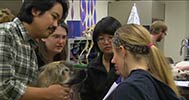
The College of Veterinary Medicine at Kansas State University is launching two new opportunities for future veterinarians: SPARK, the Summer Program for Aspiring Rural Kansas veterinarians, and SPRINTS, the Specialized Programs for the Recruitment of Indigenous, Native and Tribal Students initiative.
CVM faculty among top global researchers in recent study
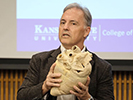
Fourteen researchers connected with the College of Veterinary Medicine were included on a list of 93 Kansas State University faculty members that were noted as being among the top 2% of researchers in the world, according to a 2020 study done by Stanford University. Some of the cited faculty members are retired/emeritus and not currently on the faculty in 2021.
More Headlines
CVM chooses Melissa Riley for inaugural Dr. Walter C. Bowie scholarship

A new scholarship honors the legacy of a renowned alumnus from the College of Veterinary Medicine while promoting diversity among future veterinarians. Third-year veterinary student Melissa Riley, Olathe, Kansas, Junction City, Kansas, was announced as the college’s first recipient of the Dr. Walter C. Bowie Scholarship.
K-State veterinarian shares tips to help pets cope with winter chill

A Kansas State University veterinarian says the current frigid temperatures mean it's time to consider bringing some pets, especially dogs and cats, inside."
Pets that are not acclimated to the colder weather and those that are very young or old should be brought in during the colder temperatures," said Dr. Susan Nelson, clinical professor at the Veterinary Health Center.
Local dogs donate blood to save canine lives
By Piper Brandt
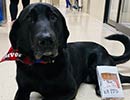
Just like humans, our canine friends can donate lifesaving blood products to other dogs in need. The Veterinary Health Center, or VHC, manages a community-based, volunteer canine blood-donor program, established in 2015. The hospital's blood bank collects, processes and stores canine blood needed for transfusions to treat a variety of conditions in dogs.
Regular features
Alumni Events, Development and Continuing Education
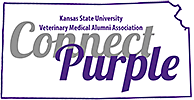 The Veterinary Medical Alumni Association organizes alumni receptions at several of the national annual conferences plus continuing education events and more. This month's section includes the monthly listings of recently departed alumni and links to their obituaries, plus a new link for submitting nominations for Alumni Recognition Awards.
The Veterinary Medical Alumni Association organizes alumni receptions at several of the national annual conferences plus continuing education events and more. This month's section includes the monthly listings of recently departed alumni and links to their obituaries, plus a new link for submitting nominations for Alumni Recognition Awards.
News Ticker
| More activities and accomplishments in the College of Veterinary Medicine: |
|
Congratulations to former graduate student Sarah Remfry, Drs. Raghavendra Amachawadi, Xiaorong Shi, Jianfa Bai, Jason C. Woodworth, Mike D. Tokach, Steve Dritz, Robert D. Goodband, Joel M. DeRouchey and T. G. Nagaraja. Their research article, “Polymerase Chain Reaction-Based Prevalance of Serogroups of Escherichia coli Known to Carry Shiga Toxin Genes in Feces of Finisher Pigs,” from the Foodborne Pathogens and Disease Journal was selected as a "high-impact" article for the month of December 2020. The journal selects three high impact articles from every issue. Dr. Chris Blevins presented at the Virtual Nebraska Veterinary Medical Association Annual Conference on Jan. 29. Dr. Blevins presented, “On the Road – Equine Medicine,” covering the topics of equine field emergencies, equine dental care, and technology and equine field service. Drs. Michael Kleinhenz, Abbie Viscardi and Hans Coetzee had their article, “Invited Review: On-farm pain management of food production animals,” selected as the editor’s choice for the Applied Animal Science journal. The article was also highlighted on the homepage of the journal. Drs. Adam Hunt and Maria Jugan published, “Anemia, iron deficiency, and cobalamin deficiency in cats with chronic gastrointestinal disease,” in the Journal of Veterinary Internal Medicine. Drs. Erica Chavez-Peon Berle, Kate KuKanich and David Biller published, “Ultrasonographic findings of gastrointestinal histoplasmosis in dogs,” in the Journal of American College of Veterinary Radiology. Dr. Megan Niederwerder was an invited speaker at the Ohio Swine Health Symposium in Columbus, Ohio, on Feb. 9. The title of her talk was "Role of the Gut Microbiome in Reducing Antimicrobial Use." She was also an invited speaker at the Ohio Pork Congress in Columbus on Feb. 10. The title of her talk was "Foreign Animal Disease Update: FAD Risk in Feed." Drs. William Whitehouse, Megan Kelley and Justin Thomason received $10,000 in funding for their project, “Renal and cardiac effects of diltiazem continuous infusion in healthy dogs,” from the American College of Veterinary Internal Medicine. Drs. Amy Rankin, Megan Cullen, Jessica Meekins, Rose McMurphy, and Jennifer Klingele received $5,000 in funding from the ACVO Vision for Animals Foundation for their research, “Evaluation of the analgesic effects of liposomal bupivacaine (Nocita®) in client-owned dogs following enucleation.” |
 We have expanded our social channels!
We have expanded our social channels!
Join the College of Veterinary Medicine on LinkedIn and add us to your profile under education and/or employment to help build and engage our online social community! Follow the LinkedIn page here: www.linkedin.com/company/kstatevetmed
New Arrivals/Recent Departures
Lifelines is published each month by the Marketing and Communications Office at the College of Veterinary Medicine. The editors are Joe Montgomery, jmontgom@vet.k-state.edu, and Piper Brandt, pnbrandt@vet.k-state.edu.

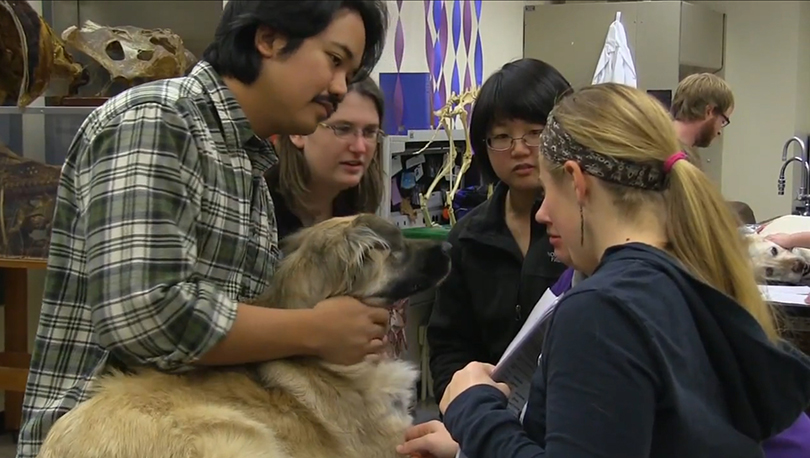 The SPARK and SPRINTS programs will help encourage students in underserved communites to become veterinarians.
The SPARK and SPRINTS programs will help encourage students in underserved communites to become veterinarians.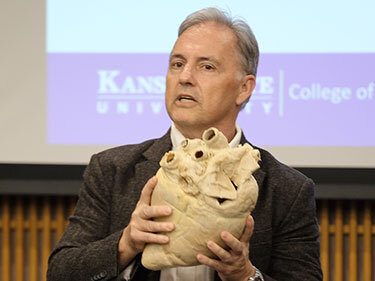 Dr. David Poole, who Stanford has listed among the top 2% of researchers in the world, has conducted research in these areas of anatamony & physiology:
Dr. David Poole, who Stanford has listed among the top 2% of researchers in the world, has conducted research in these areas of anatamony & physiology: 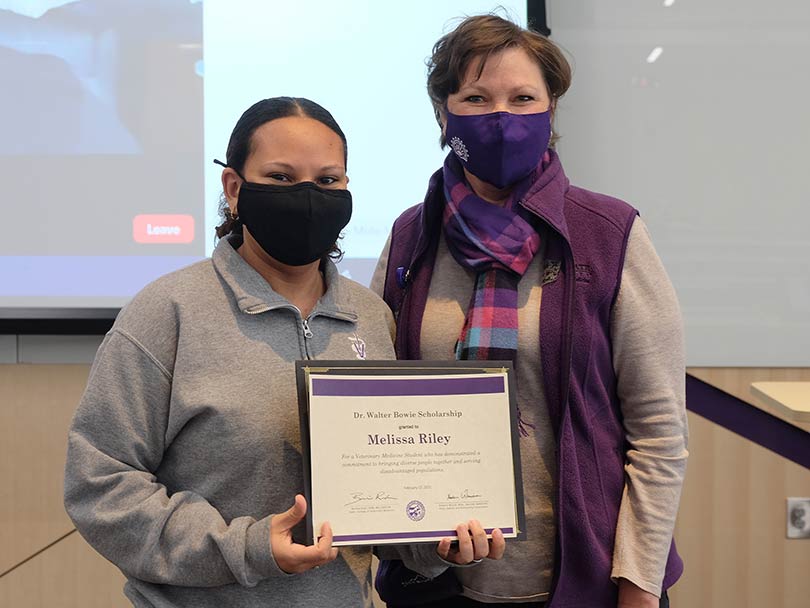 Dr. Callie Rost presents Melissa Riley with the Bowie Scholarship.
Dr. Callie Rost presents Melissa Riley with the Bowie Scholarship.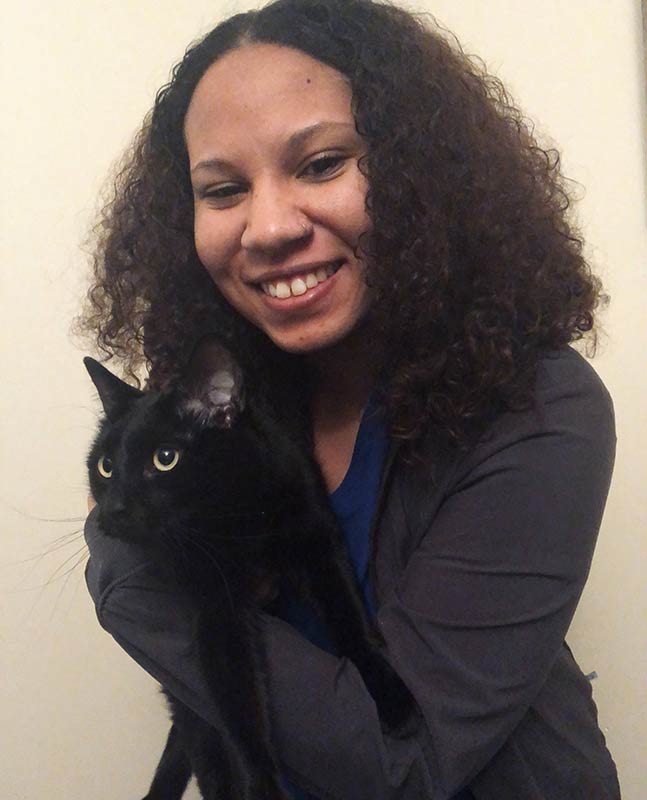

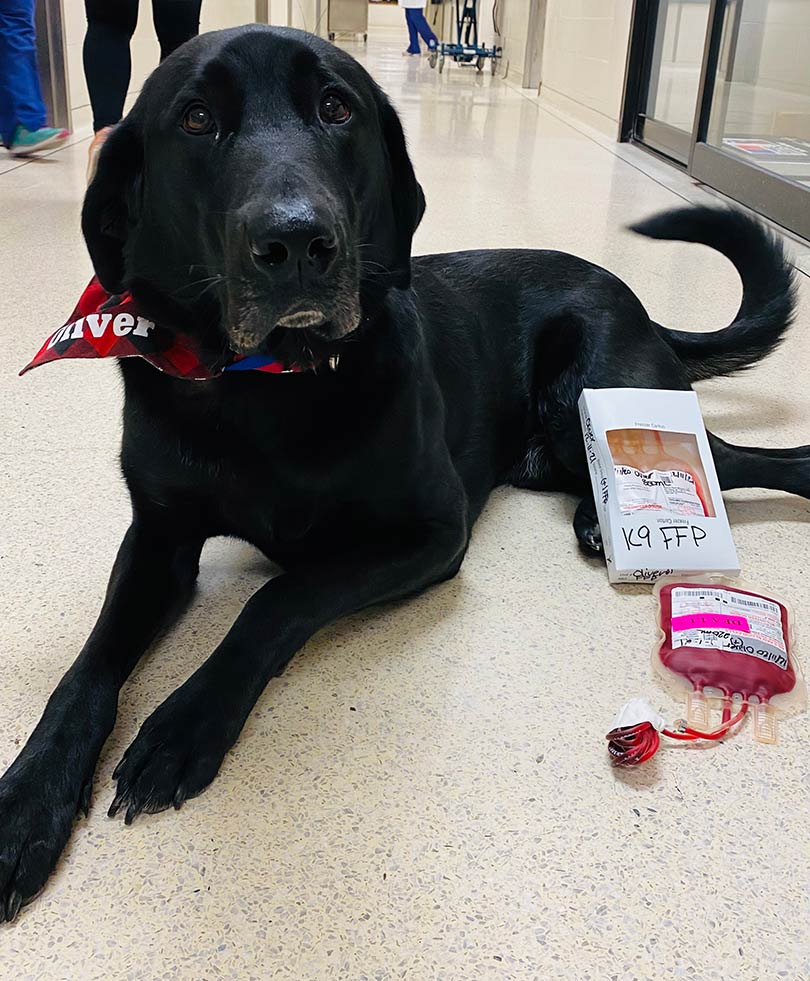 Donor dog Oliver poses with his successful donation.
Donor dog Oliver poses with his successful donation.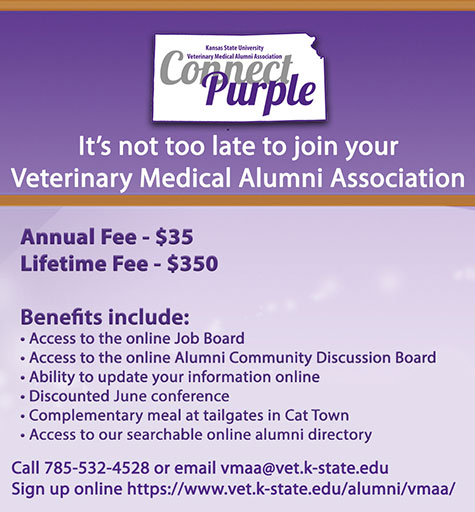
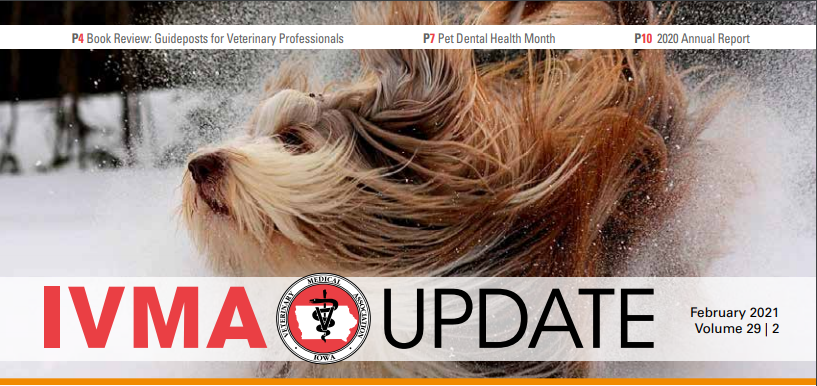
 Tony Ballard
Tony Ballard Sarah Keatley
Sarah Keatley